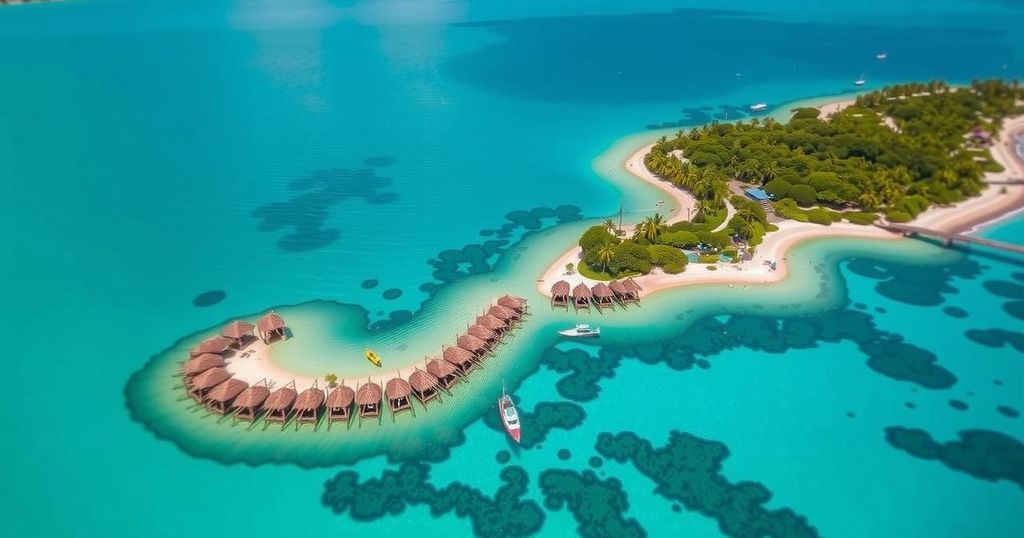The Bahamas is freeing up over $120 million through a nature-for-debt swap to combat climate change. Financed by Standard Chartered, the initiative will facilitate funding for marine conservation, restoring areas damaged by Hurricane Dorian and protecting significant marine ecosystems. This deal marks a first for private investors providing credit insurance and includes commitments to mitigate climate change.
The Bahamas has announced a significant initiative to allocate over $120 million towards tackling climate change through a nature-for-debt swap. This arrangement, financed by Standard Chartered and supported by private investors, entails repurchasing existing debt via a new loan with favorable interest rates. The initiative aims to release approximately $124 million over the next 15 years, specifically for marine conservation efforts that will safeguard the country’s waters and marine biodiversity.
Funding derived from this financial strategy will be directed towards the restoration of critical habitats damaged by Hurricane Dorian in 2019. Furthermore, it will support the protection of a marine area that exceeds the size of the Gulf of Mexico, ensuring the sustainability of vital ecosystems. Bahamas officials emphasize the importance of this initiative in maintaining the health of commercial fisheries, which are integral to the nation’s economy—illustrated by the spiny lobster fishery, which reportedly generates about $100 million annually.
This innovative deal positions the Bahamas alongside countries such as Belize, Gabon, and Barbados, which have previously entered into similar agreements. However, it is noteworthy that this particular arrangement marks the first occasion where private investors have provided credit insurance for such an environmental undertaking. Additionally, it incorporates commitments to mitigate climate change, as highlighted by the Nature Conservancy, an organization actively involved in the project. The Bahamas has a commendable history of environmental stewardship, with over 17 percent of its coastal waters designated as protected areas, encompassing more than 16 million acres of international waters.
Climate change poses a significant threat to many nations, particularly island nations like the Bahamas, which rely heavily on marine ecosystems for their economy and livelihood. In response to these threats, innovative financial strategies like nature-for-debt swaps emerge as potential solutions. These agreements allow nations to alleviate debt burdens while simultaneously investing in environmental protection and restoration projects. By engaging private investors, the Bahamas aims to enhance its capacity for climate resilience and sustainable economic development through this strategic financial maneuver.
In conclusion, the Bahamas is taking proactive measures to address climate change through the implementation of a nature-for-debt swap, which will release over $120 million for crucial marine conservation initiatives. This project not only aims to restore ecosystems impacted by natural disasters but also supports vital fisheries that are essential to the local economy. As a pioneer in incorporating private investment and environmental commitments into such agreements, the Bahamas sets a commendable example for other nations to follow.
Original Source: san.com







